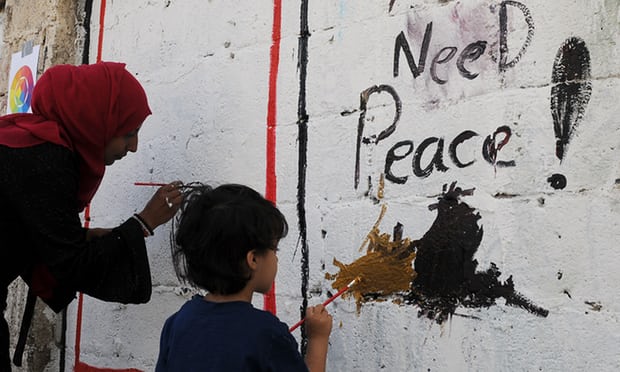
Yemen is entering its fourth year of war – when will the suffering end?
YemenExtra
Y.A
Written by Hind Abbas
In three years, so many things can happen in a person’s life. A child will start going to nursery, a student can get a bachelor’s degree. In three years, someone can meet the love of their life and get married; someone can start a business and succeed. Imagine what change can happen to a country that is considered the poorest in the Middle East and exhausted by war.
The day that changed the lives of millions of Yemenis was 26 March 2015, when, within three hours, the sky filled with aircraft. People were shocked by what was happening, hoping that when the sun next rose, this would just have been a bad dream. They thought it would only last for a couple of days, but sadly three days passed and there was still war; three weeks passed and there was still war; three months passed and there was still war; and, today, three years will have passed, yet the situation keeps deteriorating.
Who can forget the pictures of hundreds of Yemenis around the world stuck in airports, unable to return to their hometowns or families? The lives of everyday Yemenis were completely paralysed; the streets were empty; schools and universities were closed. Airstrikes were intensive and there was ground fighting in many different cities and villages.
Within just one month, more than 1.8 million people had been forced to flee their homes, becoming internally displaced within Yemen. There was a glimmer of hope when the airport reopened, and people were able to both come back and to travel abroad for medical treatment, education and other purposes. Students resumed school and universities also reopened. But, unfortunately, today, 2 million children are estimated to be out of school.
As the second year of war began, people started to find coping mechanisms to help them survive its brutality. They learned how to sleep through the sound of airstrikes. They learned to put on a brave smile and hide their pain. While airstrikes continued, and ground fighting spread throughout many areas, the number of internally displaced people increased to nearly 2.4 million. And yet, still more was to come – the airport was closed in Sana’a and salaries stopped being paid.
The closure of Sana’a airport caused severe harm. According to the ministry of health, an estimated 10,000 Yemenis have died from critical health conditions, largely because they could not leave Yemen to access medical treatment abroad. It is very hard for people who suffer from a critical illness to travel for 12 hours, be stopped at every checkpoint, just to be able to go to Aden airport to travel outside Yemen. I remember the story of Amira, an elderly woman who wasn’t able to travel because she had to carry her oxygen cylinder with her. Or Ali, who wanted to travel to see his son and grandchildren and to seek medical care, but who died waiting for the airport to open. These stories are not rare.
Given the turmoil that Yemen is in, cutting public-sector salaries has had a huge impact on the economy and public services. It left civil servants destitute and hungry, as well as their spouses, children and parents – how will they be able to afford their next meal, and will there even be food or cooking gas? Today, more than 8 million people are on the brink of famine. People don’t know where their next meal is coming from. Ameena, a woman dependent on her husband’s salary, told me: “We were happy with the little that we had, but now we have only bread to feed me and my eight children.” How long can this go on?
As the war entered its third year, Yemen’s humanitarian needs increased tremendously, with 22.2 million Yemenis – nearly three in every four people – reliant on humanitarian aid to survive. On top of this, dengue fever, malaria, diphtheria and cholera began to spread fast. In May 2017, there was a huge outbreak of cholera, which went on to affect 1 million Yemenis before the end of the year. Yemenis will never forget the images we saw of crowded hospitals, and the fear of the disease spreading again.
Now, as we enter the fourth year of fighting in Yemen, it is up to political powers and the international community to end it. If the war continues, hunger, destruction, disease, and death will dominate, and this is what Yemen will be known for. Yemen deserves better. Looking at three years of destroyed infrastructure, starvation and unchecked spread of disease, the humanitarian needs have increased from one year to another at an insane rate. Peace is the only thing that will allow us to rebuild our country; the Yemeni people have been suffering for far too long.
Peace has to take the place of destruction. Development and infrastructure have to take the place of starvation. Laughter and happiness and normality should take the place of the endless stories of sadness and destruction and death. Yemenis deserve more than this. Yemen deserves better.
